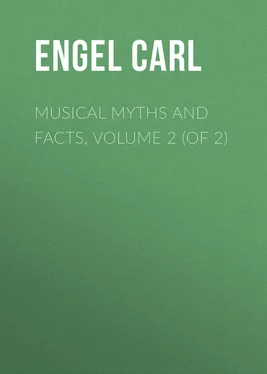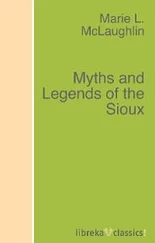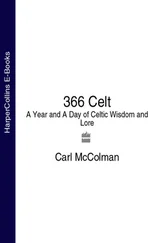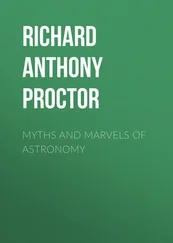Carl Engel - Musical Myths and Facts, Volume 2 (of 2)
Здесь есть возможность читать онлайн «Carl Engel - Musical Myths and Facts, Volume 2 (of 2)» — ознакомительный отрывок электронной книги совершенно бесплатно, а после прочтения отрывка купить полную версию. В некоторых случаях можно слушать аудио, скачать через торрент в формате fb2 и присутствует краткое содержание. Жанр: music_dancing, foreign_antique, foreign_prose, на английском языке. Описание произведения, (предисловие) а так же отзывы посетителей доступны на портале библиотеки ЛибКат.
- Название:Musical Myths and Facts, Volume 2 (of 2)
- Автор:
- Жанр:
- Год:неизвестен
- ISBN:нет данных
- Рейтинг книги:5 / 5. Голосов: 1
-
Избранное:Добавить в избранное
- Отзывы:
-
Ваша оценка:
- 100
- 1
- 2
- 3
- 4
- 5
Musical Myths and Facts, Volume 2 (of 2): краткое содержание, описание и аннотация
Предлагаем к чтению аннотацию, описание, краткое содержание или предисловие (зависит от того, что написал сам автор книги «Musical Myths and Facts, Volume 2 (of 2)»). Если вы не нашли необходимую информацию о книге — напишите в комментариях, мы постараемся отыскать её.
Musical Myths and Facts, Volume 2 (of 2) — читать онлайн ознакомительный отрывок
Ниже представлен текст книги, разбитый по страницам. Система сохранения места последней прочитанной страницы, позволяет с удобством читать онлайн бесплатно книгу «Musical Myths and Facts, Volume 2 (of 2)», без необходимости каждый раз заново искать на чём Вы остановились. Поставьте закладку, и сможете в любой момент перейти на страницу, на которой закончили чтение.
Интервал:
Закладка:
As regards the Introduction with which Mattheson has prefaced his translation, it is so diffuse, and contains so little about Handel, that few musicians now would care to read it entirely. It is headed by a quotation in English, from the Tatler (No. 92): – " Panegyricks are frequently ridiculous, let them be addressed where they will. "
Mattheson aims more at impressing the reader with his own merits than with those of Handel. He says, for instance: "In describing an artist's life, it is not sufficient to represent the man only as an artist; the artist must rather be considered also as a man; for thus only can his merits be properly understood. However, no one is able to know or to do everything in his vocation. Thus, in music, one performer excels on the organ-pedals, while another surpasses him on the harpsichord. The first may be called coarse; the second, delicate. The first may be only appreciated by connoisseurs; the second, by everyone. A company of artists – if any such exists – is like a bunch of different keys. No one of these is to be extolled before the other but only in so far as it opens an important lock which encloses a treasure. One musician is not only a player, but also a singer; another never opens his mouth to sing – nay, not even to laugh. The former, besides being able to compose, to sing, to play, and to dance, acts a principal character on the stage; the latter, with his quantity of musical scores, has taken care not to appear upon the boards of the theatre. Indeed, he would have cut a funny figure had he done so. Here, some one who occupies himself with music, and also with various sciences, in a superior manner, works at the same time for kings and princes; there some one employs his gifts principally in the service and for the amusement of the subjects. From this it is clear that each in his particular line may deserve honour and laudation; not properly on account of his person, but on account of his achievements… No mere Musicus practicus ecclesiastico-dramaticus , who took a high rank as a director of the orchestra, and a still higher rank as an organist, but who was neither a singer nor an actor, and least of all a mathematician – has ever, before Handel, attained to this, that without his help a special book of a considerable size on his life has been written, and supplied with instructive observations – still more, that his biography has been translated into another language by a brother-artist by no means of the common class. Competing successors do not feel hurt by these stimulating spurs!"
In order to render the following annotations by Mattheson properly intelligible, the statements of Mainwaring to which they refer are inserted with them. The latter are copied exactly as they were originally written; while Mattheson's annotations are translated from the German.
Mainwaring (P. 1). "George Frederick Handel was born at Hall, 3 3 Halle.
a city in the circle of Upper-Saxony, the 24th February, 1684, 4 4 Should be 1685.
by a second wife of his father, who was an eminent surgeon and physician of the same place, and above sixty when his son was born."
Mattheson. "The author is wrong in calling Halle a town of Upper-Saxony. It lies in the Dukedom of Magdeburg, which belongs to Lower-Saxony. Handel was, therefore, no Upper-Saxon, but rather a Lower-Saxon."
Mainwaring (P. 6). "It may not be unpleasant to the reader just now to remind him of the minute and surprising resemblance between the early periods of Handel's life and some which are recorded in that of the celebrated M. Pascal, written by his sister. Nothing could equal the bias of the one to Mathematics but the bias of the other to Music; both in their very childhood out-did the efforts of maturer age; they pursued their respective studies not only without any assistance, but against the consent of their parents, and in spite of all the opposition they contrived to give them."
Mattheson. "Almost the same was the case with Tycho Brahe, and with the translator of this biography, each in his vocation."
Mainwaring (P. 15). "Zackaw [Zachau] was proud of a pupil who already began to attract the attention of all persons who lived near Hall [Halle], or resorted thither from distant quarters. And he was glad of an assistant who, by his uncommon talents, was capable of supplying his place whenever he had an inclination to be absent, as he often was, from his love of company and a cheerful glass."
Mattheson. "Could not the life of Handel have been written without aspersing the brave tone-artist Zachau forty years after his death on account of a glass of wine?"
Mainwaring (P. 15). "It may seem strange to talk of an assistant of seven years of age, for he could not be more, if indeed he was quite so much, when first he was committed to the care of this person."
Mattheson. "The author appears to have not the least scruple in committing the most palpable anachronism by making his hero the younger the taller he grows. This will presently appear evident."
Mainwaring (P. 16). "We have already hinted at some striking coincidences of life and character which are found in him and the famous Pascal. In this place we may just observe that the latter at the age of twelve compos'd a treatise on the propagation of sounds, and at sixteen another upon conic sections."
Mattheson. "But it must be remembered that afterwards he entirely gave up mathematics. See Bayle."
Mainwaring (P. 18). "It was in the year 1698 that he went to Berlin. The opera there was in a flourishing condition under the direction of the King of Prussia (grandfather of the present), who, by the encouragement which he gave to singers and composers, drew thither some of the most eminent from Italy and other parts."
Mattheson. "Anno 1698 there was no King in Prussia; the first dated from 1701. Handel has, therefore, seen no king in Berlin. That the author is as bad a genealogist and politician as he is a chronologist, is proved by his mistaking the grandfather of the present king for the father, and by his always mentioning the then reigning Elector as the King."
Mainwaring (P. 20). "Attilio's fondness for Handel commenced at his first coming to Berlin, and continued to the time of his leaving it. He would often take him on his knee, and make him play on his harpsichord for an hour together, equally pleased and surprised with the extraordinary proficiency of so young a person; for at this time he could not exceed thirteen, as may easily be seen by comparing dates."
Mattheson. "He was born anno 1684. 5 5 That Handel was born on the 23rd of February, 1685, and not on the 24th of February, 1684, is correctly stated in J. J. Walther's 'Musicalisches Lexicon,' Leipzig, 1732. To settle the uncertainty about the date, which appears to have arisen chiefly through Mainwaring's mis-statement, J. J. Eschenburg consulted the Baptismal Register of the Frauenkirche in Halle, where he found the year 1685 given. ( See 'Dr. Karl Burney's Nachricht von Georg Friedrich Handel's Lebens umständen, und der ihm zu London im May und Juny, 1784, angestellten Gedächtnissfeyer, aus den Englischen übersetzt von J. J. Eschenburg; Berlin, 1785'). – Förstemann ('Händel's Stammbaum,' Leipzig, 1844), and others, have subsequently convinced themselves that Eschenburg's date is correct. The year 1684, given on Handel's Monument in Westminster Abbey, therefore, requires rectifying.
He arrived in Berlin anno 1698. Even if the various occurrences with Buononcini and Attilio, with the Elector and his court, took only a few hours – nay, even if they are not taken into account at all, there are still at least fourteen years. One should think that he was much above seven years when Ariosti (Attilio) took him on his lap." 6 6 Chrysander ('G. F. Handel,' Leipzig, 1858, Vol. I., p. 52) surmises that Handel was not in Berlin in 1698, but in 1696, when he was eleven years old.
Интервал:
Закладка:
Похожие книги на «Musical Myths and Facts, Volume 2 (of 2)»
Представляем Вашему вниманию похожие книги на «Musical Myths and Facts, Volume 2 (of 2)» списком для выбора. Мы отобрали схожую по названию и смыслу литературу в надежде предоставить читателям больше вариантов отыскать новые, интересные, ещё непрочитанные произведения.
Обсуждение, отзывы о книге «Musical Myths and Facts, Volume 2 (of 2)» и просто собственные мнения читателей. Оставьте ваши комментарии, напишите, что Вы думаете о произведении, его смысле или главных героях. Укажите что конкретно понравилось, а что нет, и почему Вы так считаете.












